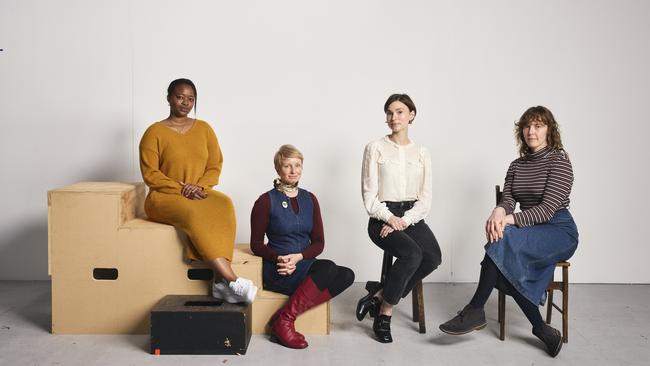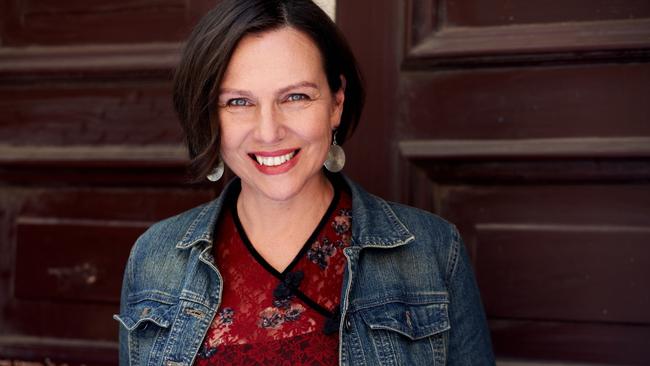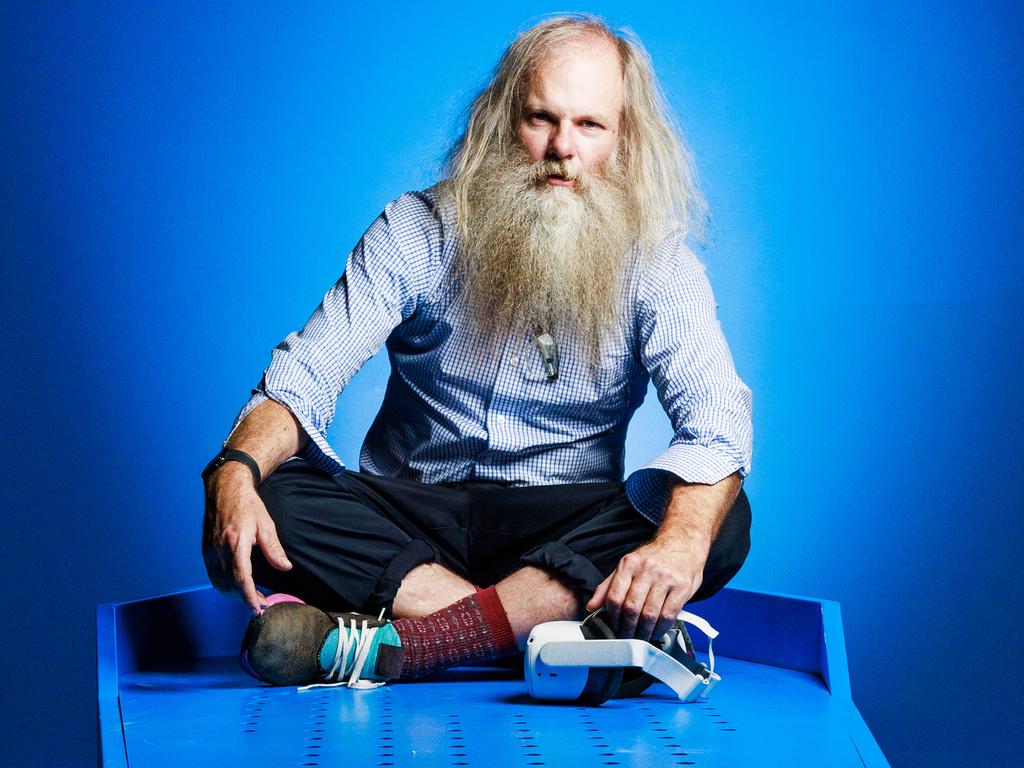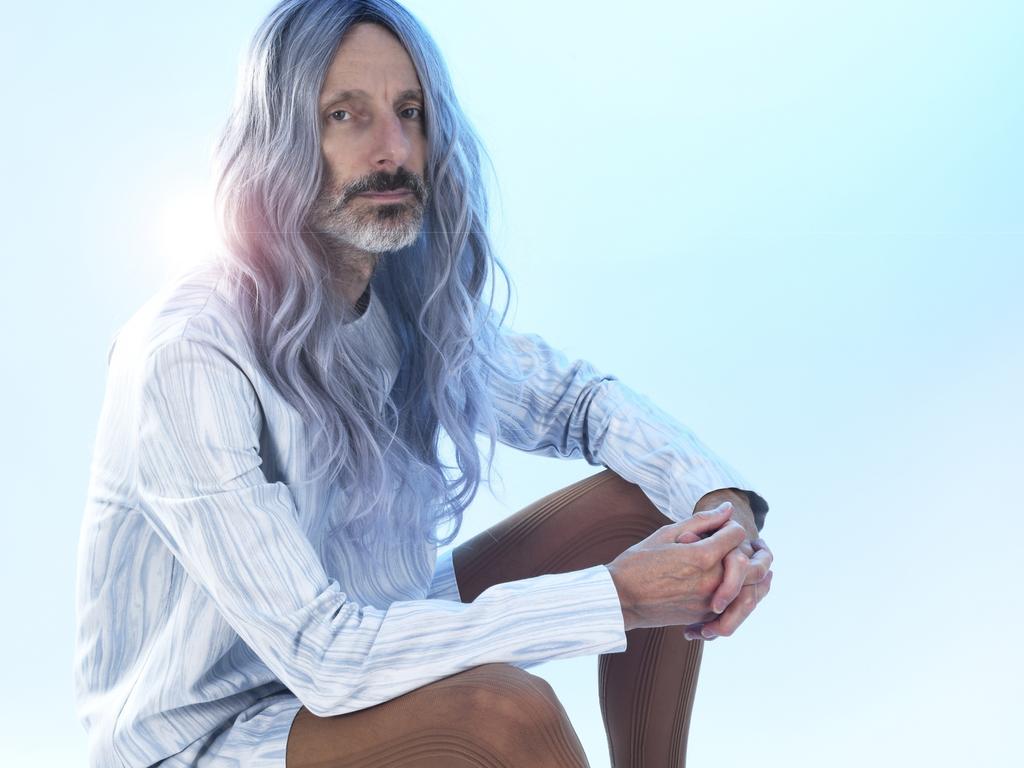‘They felt sorry for me … I was worried I’d f..k up a good idea’: The Dictionary of Lost Words author Pip Williams
When Pip Williams told people she was writing a novel about the dictionary, people looked at her in pity. Now her bestselling book is premiering on stage and being made into a TV series.

When Pip Williams told people she was writing a novel about the Oxford English Dictionary, their eyes would glaze over at her in pity. Loved ones and colleagues thought she was doomed to failure.
“They felt sorry for me because I was attempting to become a novelist on the back of researching a dictionary,” says Williams.
While the author, 54, had a PhD in public health policy and had previously written a memoir titled One Italian Summer, she did not have a background in creative writing. Nor did she have a contract in place with any prospective publishers when she began researching the history of the first edition of the Oxford Dictionary.
She was, however, quietly confident she had a story. “I knew the notion that the dictionary is biased was interesting,” she says. “But I was worried I could really f--k up a good idea.”
In her debut novel, The Dictionary of Lost Words, she follows the fictional life story of a girl named Esme Nicoll, who finds meaning in the words discarded by the lexicographers, including her father, during the creation of the first Oxford English Dictionary.
The story - told across 423 pages and spanning almost 100 years - is an intricate human tale of female fortitude during the rise of the suffragette movement.

It offers not only a lesson in lexicon, but an appreciation of the meaning that is lost when language omits the words women need to articulate their own experiences.
The novel was published by Affirm Press in March 2020 as pandemic-induced chaos was growing; this created a sense of distance between Williams and the readers who would find her novel.
“I hadn’t met anybody telling me what the book meant to them,” she says of that time. “Nothing in my life was changing.”
A turning point came when Reese Witherspoon’s book club, with its vibrant online cult following, endorsed the novel. The Dictionary of Lost Words went on to win the top prize at the 2021 Indie Book Awards and was named general fiction book of the year at the Australian Book Industry Awards. South Australian-based production companies Highview Productions and Closer Productions last year announced they had optioned the rights for a television series.
But before it graces the screen, the New York Times bestseller will receive its world premiere stage adaptation in Adelaide this month in a co-production by State Theatre Company South Australia and Sydney Theatre Company.
Since she released the story into the world to find its own identity, Williams believes it is no longer hers to keep.
“I feel like the mother of an adult child, and that child has gone off and done something interesting,” she says. “While I made the conditions right to [nurture] it, it’s made its own connections with people without me being around.”
■ ■ ■
The play’s premiere coincides with a particularly difficult time in Williams’s life. She is speaking over the phone from her home in the Adelaide Hills on what happens to be the same day as her father’s funeral, a final goodbye to a man who was instrumental in her crafting of the character of Harry, Esme’s father, in the book.
“It was his time, but yes — Harry is based on my dad and the kind of loving relationship we had.”
She explains it was her father who, during her liberal upbringing on Sydney’s Northern Beaches in the 1980s, inspired her love of writing. Not only did he pen poetry, short stories and two novels of his own, “he gifted me my first, second and third dictionaries. I was a truly terrible speller,” Williams says. “[I admire] the way he loved writing, he was never tortured by it, and I have always tried to achieve a similar contentment in my writing life.”
Her father was also a feminist and encouraged her success, from her earliest writing days in childhood to his final moments, just weeks before the opening of the play.
“He showed me that being a writer was possible. When I see [actor] Brett Archer playing Harry, I will recognise aspects of my father up there on stage. The play will hold that poignancy for me.”
Since writing the novel, Williams has received many letters from men praising her for the way in which she has depicted a positive father-daughter relationship.
“I have this approach,” she says, “I don’t want to write about individual bad men doing bad things to women.”
Rather, she perceives a greater danger in the structural social systems that keep women down. Williams is adamant the stage adaptation written by playwright Verity Laughton will bring even more awareness to these invisible forces as a cast of eight actors bring to life the story of a girl, her father and the power of language.
■ ■ ■
Tilda Cobham-Hervey, 29, is known for her Hepbern-esque charm. Williams is excited that the Adelaide actor - who starred in Helen Reddy musical biopic I am Woman and Amazon miniseries The Lost Flowers of Alice Hart - has been cast as her protagonist Esme.
“She’s this slender, ethereal kind of person who still manages to nail these beautiful, childish mannerisms,” she says. “Tilda is extraordinary.”
Echoing these sentiments, director Jessica Arthur says the actor has taken on the script with a “particular curiosity” and bold approach to embodying the “inner workings of Esme”.
But for Cobham-Hervey the hardest part has been learning to speak in an English accent - which is surprising given her long-term partner actor Dev Patel (Lion, Slumdog Millionaire) is British.
“Unfortunately, he doesn’t sound like a woman from the 19th century,” she says with a laugh. “His new world slang hasn’t been hugely helpful.”
Cobham-Hervey will be joined onstage by a cast including Rachel Burke, Ksenja Logos, Archer and Angela Mahlatjie, led by a predominantly female creative team.
For Williams, who has since released companion novel The Bookbinder of Jericho, The Dictionary of Lost Words has become bigger than she could have imagined.
“Ironically,” she jokes, “I haven’t got a word for how it feels to see it all come together on the stage.”
The State Theatre Company South Australia and Sydney Theatre Company present the world premiere of Dictionary of Lost Words at the Adelaide Festival Centre, running from September 22-October 14; Sydney Opera House from October 26-December 16.




